From Banat to the Pyrenees, from anthropology and ethnobotany to literature, history, art & design, the series of summer/winter schools ‘Randopat-Heritrails’ (Randonnées du Patrimoine-Heritage Trails) continues: after kicking off by ‘Mushrooms, herbs and raw food : practices and beliefs’, UVT, 7-11 November 2022, it is pursued by 'Sur les Chemins de Roland', UPPA, 12-16 June 2023.
Les Chemins de Roland started on the UPPA campus de Pau. After the introductory lecture ‘Épopées pyrénéennes’, by Valérie Fasseur, and a tour de table, so that participants could introduce themselves to each other, groups were formed for the five parallel workshops of the afternoon. One of the workshops focused, of course, on the ‘Chanson de Roland’ in Old French, but, in the other workshops, participants were given the opportunity of (re)discovering other epic texts on Roland, from the 9th to the 15th century, in Latin, Occitan, Middle French, and dialects from Castilla, León and Galicia.
In each workshop, after a general introduction of the text in focus, participants worked on selected excerpts in the original language, receiving guidance on the correct pronunciation to read them aloud and on translating them into the four UNITA languages represented in this summer school: French, Spanish, Italian and Romanian. The aim of these workshops was to provide participants with the tools for selecting excerpts to introduce, read aloud and translate, sharing them with other workshop participants, during the ‘readings in landscape’ of the following days.
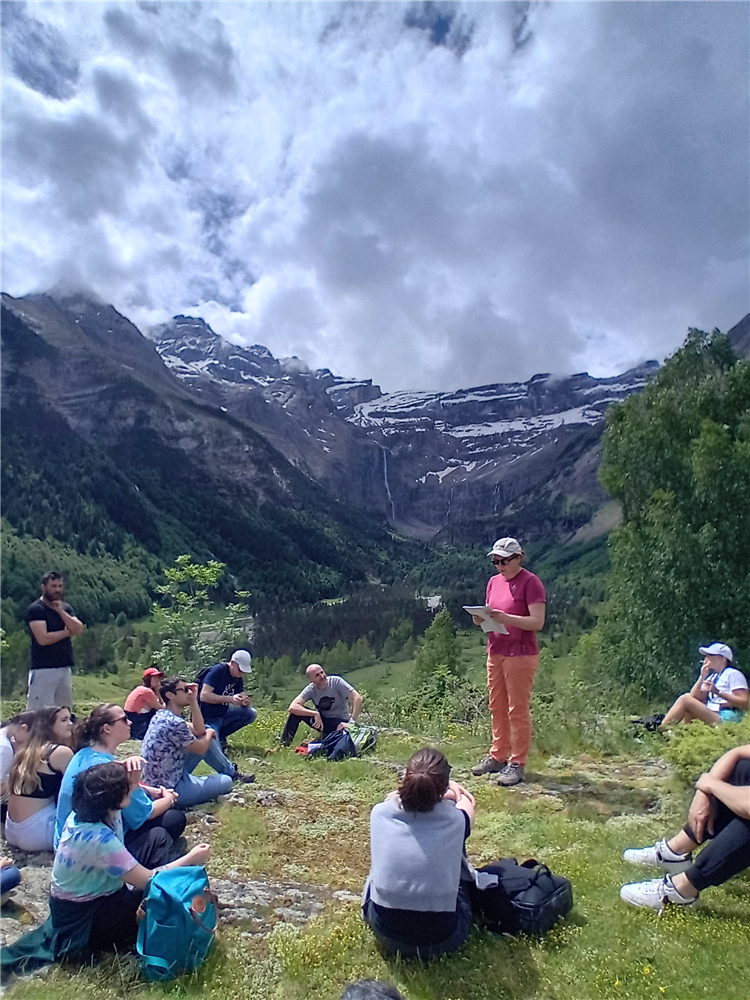 |
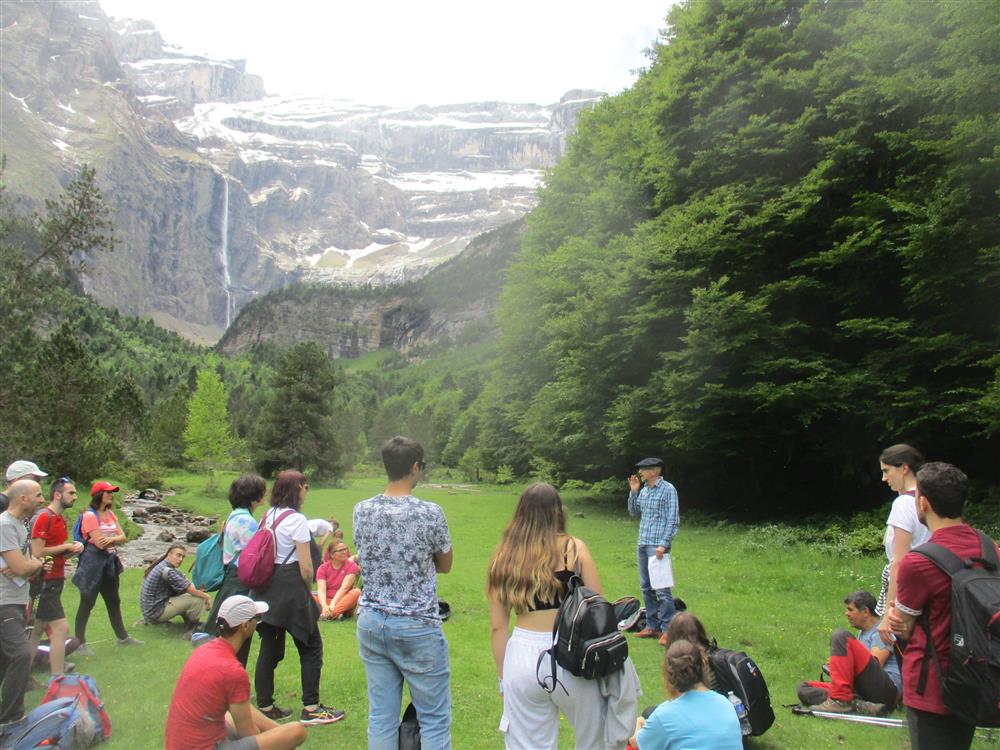 |
The day after, we had our first randonnée du patrimoine of the summer school in the Cirque de Gavarnie, one of the landmarks of the Pyrenees, including the Brèche de Roland, which, according to the legend, was cut in the mountains by dying Roland trying, without avail, to destroy his sword Durandal to prevent it falling into the hands of the enemy. It was a magnificent experience to hear the texts read aloud right in the middle of their epic landscapes.
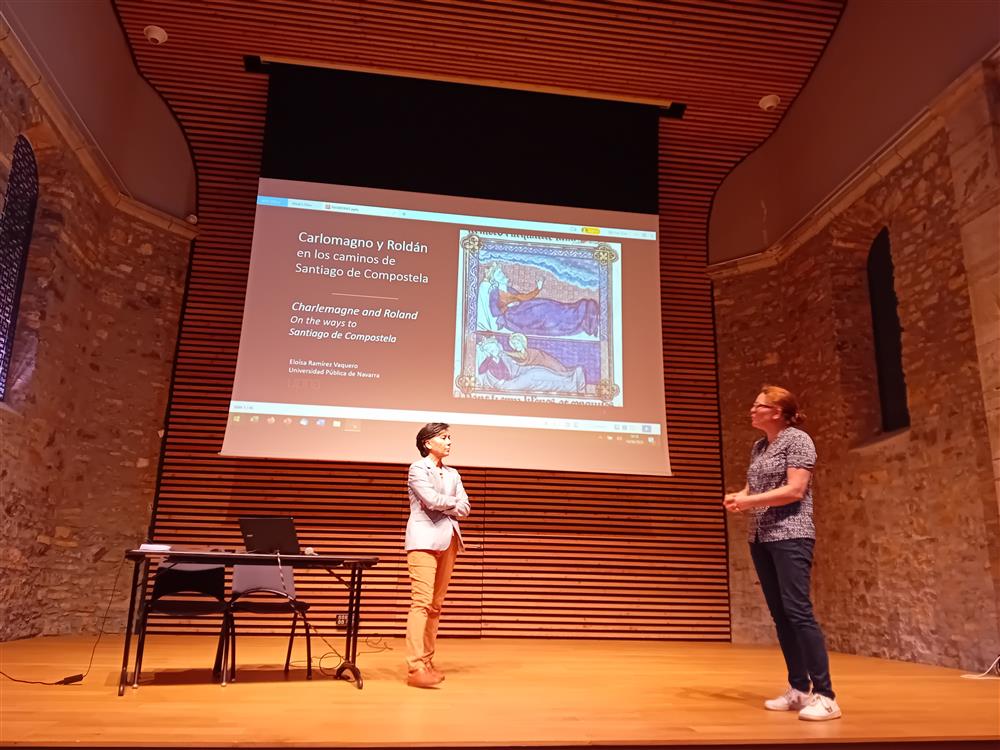 |
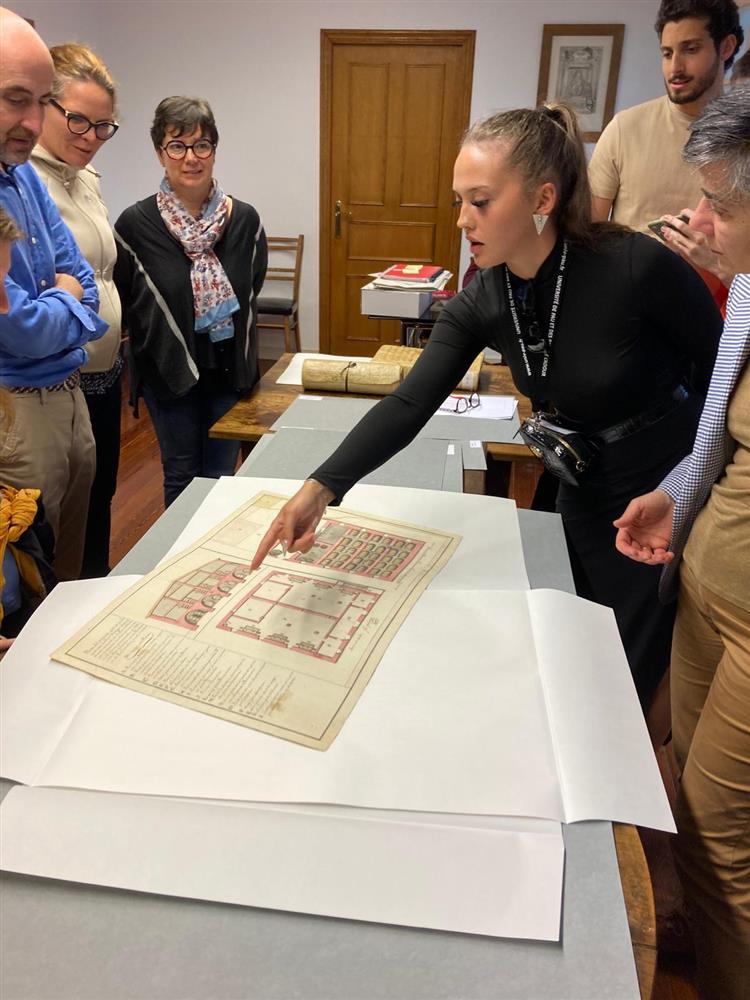 |
The following day, we travelled towards Roncevaux, with a stop-over at the Cultural Centre Chemins-Bideak, former Franciscan convent in the village of Saint-Palais, where we were joined by Eloísa Ramírez Vaquero, delivering the lecture ‘Carlomagno y Roldán en los caminos de Santiago’. We then pursued our journey up to the Col de Roncevaux, or, Col de Ibañeta, fitting site for the memorial stone of the battle of Roncevaux, with an evocative view of the two sides of the Pyrenees. At Roncevaux, down in the valley on the Spanish side, Eloísa had arranged for a visit of the historical site, including the Royal Collegiate and the Silo de Carlomagno, and she had selected a series of items from the Archives of the Royal Collegiate, which she presented to us in the course of two workshops.
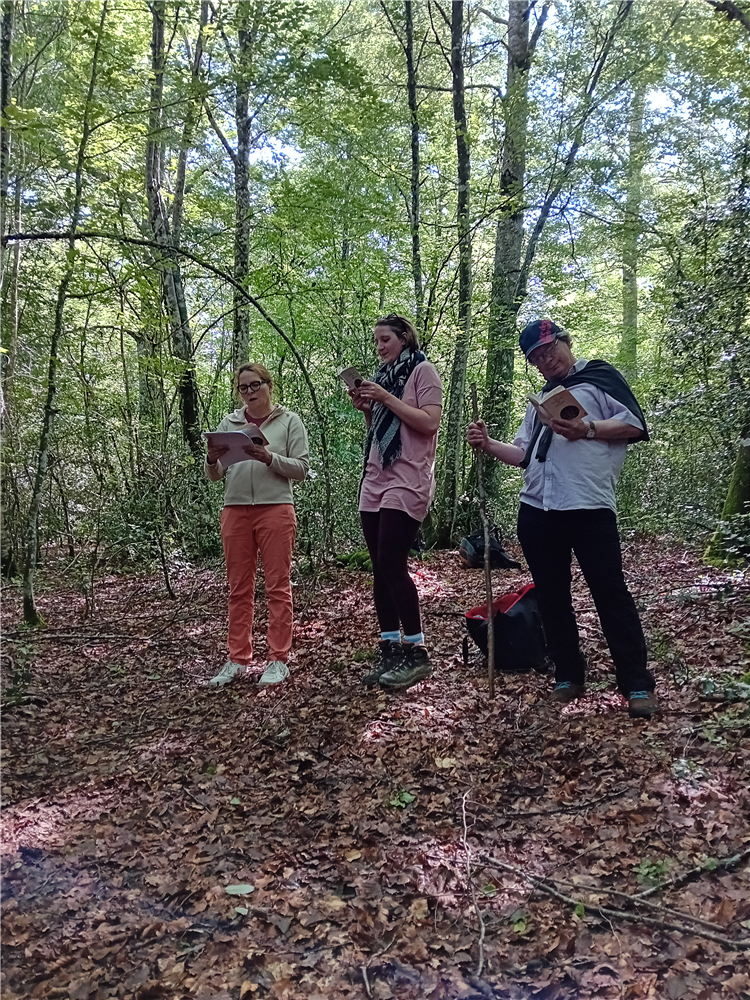 |
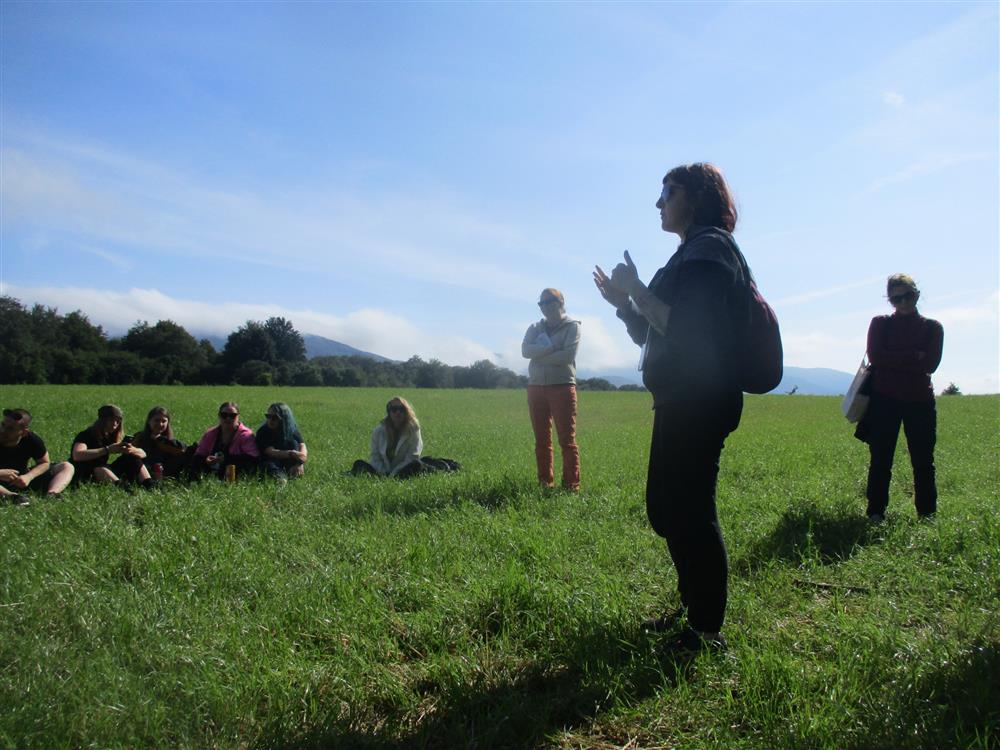 |
After spending the night in a hostel in the Roncevaux area, we had our second randonnée du patrimoine of the summer school, walking together from Espinal back to the Col of Ibañeta on the Camino de Santiago. Further readings were made, in tune with the stops in woods and glades. As final reading, overlooking the Pyrenees again, Alain Corbellari selected ‘Le Cor’, by Alfred de Vigny.
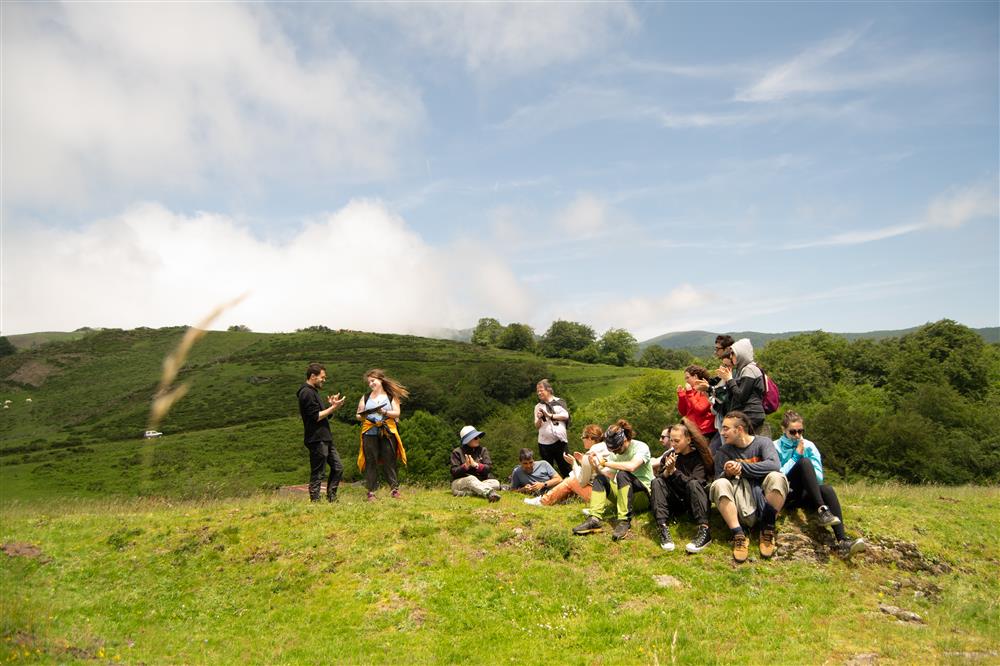
We were delighted to see that this experiment of ‘readings in landscape’ worked out so well. And this was the case also for another experimental feature of this summer school. In fact, we had another ambitious goal: to establish a creative dialogue between different disciplines, that is Mediaeval Studies and Art & Design, in particular Photography. This goal as well was fully achieved, thanks to the great work by the nine students from the Art & Design Department of the Universitatea de Vest din Timişoara. Throughout the week, they took photographs inspired by the texts we had been working on, and, at the end of the summer school, they created a video exhibition that was inaugurated at the Médiathèque André-Labarrère on the final day.
.jpg)
The secret of the success of these Randopats lies indeed in the active engagement of all their participants. We can now speak of a true Randopat community, which everybody is welcome to join. And, while walking together, we have, of course, already started planning new Randopats: one on Roman trails, once again in the Pyrenees, and one on Dracula, back to Romania, but this time to Transylvania, needless to say. So, watch this space, joining our Randopat WhatsApp Group!
Giovanna Hendel
Cultural Heritage Hub Coordinator